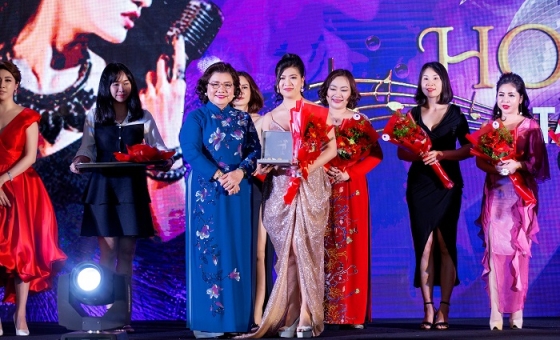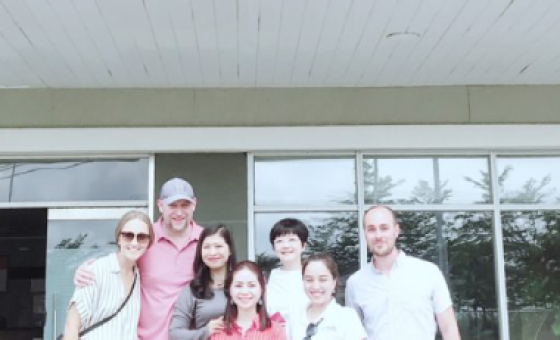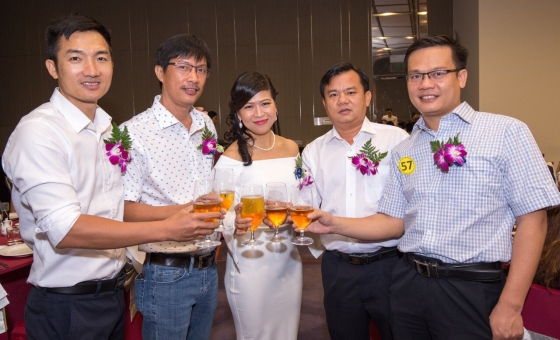Childhood associated with cane juice and lottery tickets, Nguyen Thi Kim Huyen is now the owner of a chain of companies selling Japanese food and restaurants.
“Today there is a container of cod fish coming to Vietnam. Most hotels, big restaurants are taking cod with me. Each container from Alaska (USA) is worth 280,000 USD, about 6 billion VND, not all companies in the industry can import it, ”Nguyen Thi Kim Huyen - Director of Luong Nguyen (Genki Japan House) said at a meeting. busy August afternoon. That woman, nearly 3 decades ago, once sold sugarcane juice and lottery tickets but dreamed of getting rich.
That was the year in Lagi, Binh Thuan, the young girl of 7-8 years old climbed to the top of the tree to pick fruits and sell them to the cooperative for profit. “My parents work in cooperatives with very poor wages, so I have to support my four children to go to school so I make money to support my family early. When the cooperative dissolved, my parents retired, my family was in trouble, I went to collect cow milk cans to sell. I and my family raise pigs and sell sugarcane juice, make wine, grind wheat, weave slices ... ”Huyen said she had a 'fierce' childhood with all the jobs.
Hai and Ba went to school far away, Huyen and his youngest brother took turns selling cane juice in front of the school. She ordered extra cake tables and lottery tickets to earn more. In those years, Huyền was in middle school. Looking at the lottery tickets sold to guests, she said that life can not make small money and wait for good luck.
"I think I have to study well to have a chance to get rich and I cannot rely on lottery-like luck," the lottery girl thought she had to become an entrepreneur. In 1997, Huyen entered the Foreign Trade University of Ho Chi Minh City. During student days, she tutored English, taught Vietnamese to foreigners, sold seasonal flowers on holidays. The money she earned, she paid for herself and sent her parents to take care of her youngest son's education.
CEO Luong Nguyen - Nguyen Thi Kim Huyen.
“In my senior internship, I worked as a freight forwarder, with months of income up to 18 million VND, a dream number of people who have not graduated from 2001-2002. But until graduation, the path of starting a business with me really started, ”Huyen said.
After graduation, Huyen joined a shipping company. Just a year later, when she saved a little money, she and her two associates set up a logistics company. In 2008, the company encountered many incidents of almost bankruptcy. Huyen changed her stock, changed her company name, moved her office, took most of the management and accepted the real challenge. Global Maritime Services has risen from there, currently has 30 members and a global agent system with a strong logistics strength for the beverage and seafood industry.
There is a company that seems to be not enough, like selling sugarcane juice, also wants to sell more cakes and lottery tickets to passers-by. But this time, the business boat was bigger and more organized and Huyen also thought that she had more energy and knowledge. Therefore, she had a second company, then a third company specializing in Japanese food distribution.
“That was the occasion when I joined the Youth Ship in Southeast Asia - SSEAYP 39 (2012) and was one of the two farming families that year sponsored by the Japanese government to visit the country of the rising sun. After that predestined relationship, I cherished bringing true Japanese culinary culture to Vietnam, ”Huyen recounted the idea of launching Genki Japan House.
After more than a year of traveling between Vietnam - Japan, in December 2016, she opened her first showroom in Hanoi. Huyen said the difference was only imported from Japan, not taking Japanese goods from the third country, with clear origin, fully published papers.
“Our problem is going back so we have to avoid what our predecessors did. In return, I have a logistics company, many international relationships and experience in importing and exporting seafood products, so the implementation process is very fast. I also have a Japanese restaurant to test the product. My chef can assist another unit in setting the process. That is, it is like a full ecosystem, ”Ms Genki described.
Nguyen Thi Kim Huyen during a meeting with a fish supplier in Japan in March 2019.
Nguyen Thi Kim Huyen during a meeting with a fish supplier in Japan in March 2019.
However, Genki's Japanese standard goods are not 100% imported from Japan. Kim Huyen also confirmed that, but it was a business and business optimization option that she was not afraid to share.
“Japan is not the place to produce all the ingredients for Japanese cuisine. For example, when buying official quota from Japan, the sea urchin they use is caught by Chile, Australian blue abalone, Norwegian salmon and red oysters from Canada. That is, they also buy, then pack and sell to other countries to serve Japanese kitchens around the world. Myself and the supplier have to personally go to Vietnam to explain quite a long time for the market to understand that red clam is caught in Canada, ”she said to optimize, the company has come to buy directly from producers. origin that Japan itself bought.
After 3 years, Huyen claimed Genki grew 400% in sales and had 7 locations nationwide. The staff currently has 70 people and is expected to complete the force with 100 people next year.
“I have just opened a business location in Phu Quoc. This month will open in Nha Trang. I have consulted the markets of Ha Long and Van Don but need to wait another 1.5 years for a larger number of 5-star hotels and resorts to be the next strategic market ”, Huyen stated the plan.
Not only the domestic market, Huyen recently set up another company in Houston, Texas (USA) to connect the US, Japan and Vietnam markets. Accordingly, this company will export seafood, cows from the US to Vietnam and food from Japan to the US. Also from Vietnam, she wants to go to a new company to find opportunities to export granite to the US, an industry in which she has many years of experience exporting to Europe but has been quite secretive for a long time.
Asked why not set a larger development target, for example 200-300 people, Huyen said that he was methodical, slow and medium-sized but the company was about 200 people, the monthly revenue was 30-40 billion. thin profit margin is not satisfied. Like many other industries, there is no less competition between suppliers, royal street and even royal street.
“I just believe that I'm a decent person. I think everyone has a time. Over time, if you don't do good business, you will die. So in the long run, I'm still very strong, ”she closed the story temporarily.


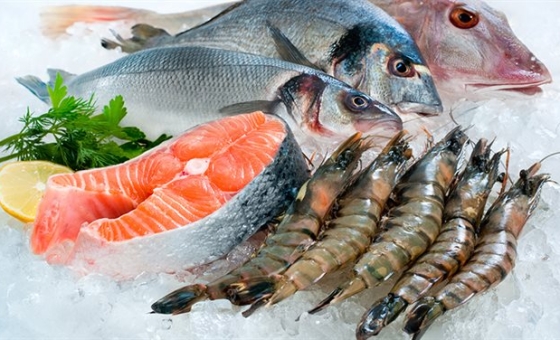

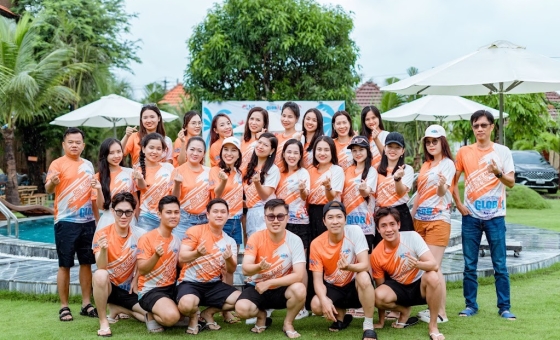






-2886.png)

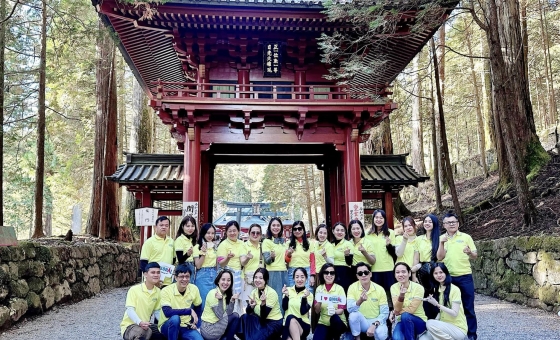
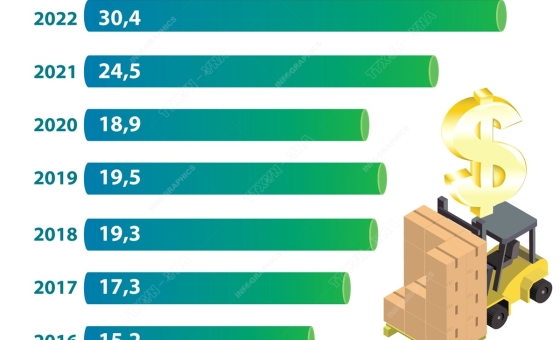

![[Corporate culture quarter 1/2023]](thumb/560x340/1/upload/sanpham/z4241794327942e206d3c6eec10254ce7630399694bcfe-0508.jpg)
-0809.jpg)

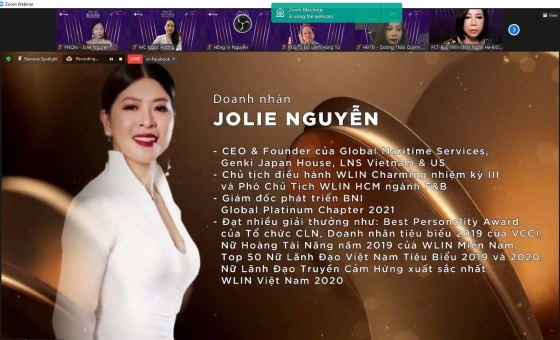

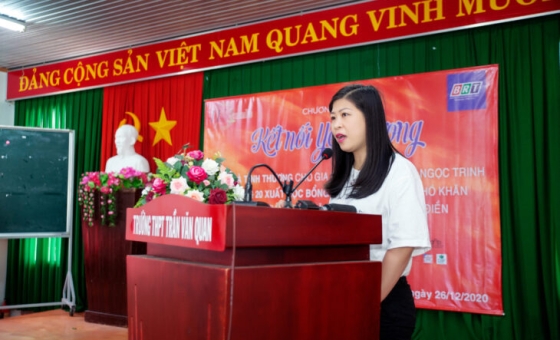
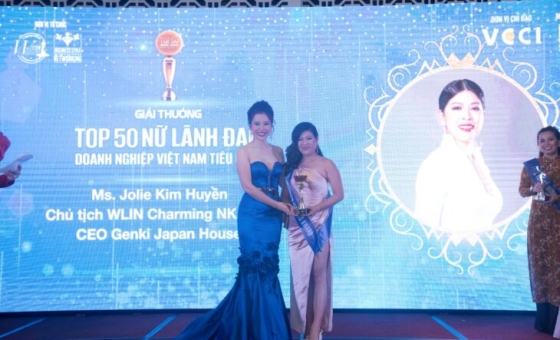
![[Thematic Report for the academic year 2020 - 2021] Foreign Trade and International Business Administration](thumb/560x340/1/upload/sanpham/nghiepvungoaithuong3-4668.jpg)


